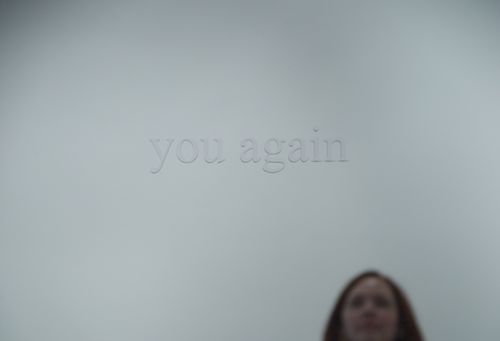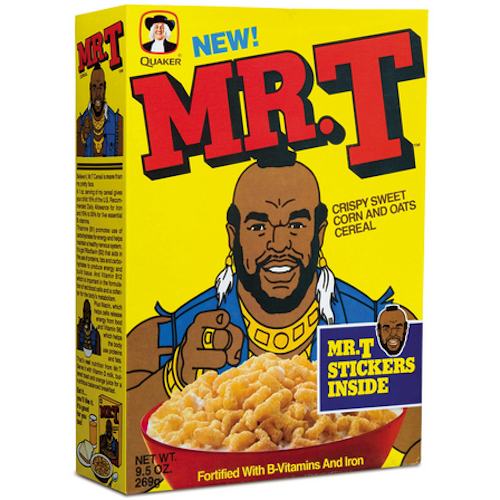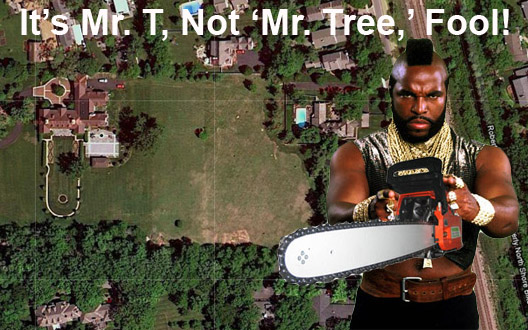Forgainst Expression

I remember standing on the corner of Mission and 8th Street in San Francisco some years ago when people still lived there, waiting for the light to change. In front of me, a little boy in a green hoodie was licking one of those enormous King Size Snickers. He'd peeled the plastic wrapper back like a banana. After a couple of tentative chews, he’d clearly decided it would be better to just lick the chocolate until you could see the PayDay bar hidden underneath. What genius decided to dunk it in chocolate? It was gross, even for Mission Street.
Anyway, right before the light changed, the little boy furrowed his brow, held the Snicker bar up to his mom and said, thoughtfully, “Mom, I love this.” Then his face brightened, he raised it up above his head like Lady Liberty, and grinned as he declared: “AND I hate it!” A real both/and statement, in the parlance of the times.
It wasn’t exactly a Thomas-Merton-at-the-corner-of-4th-and-Walnut-in-Lexington moment, but it’s a dual/duel sentiment that resists ambivalence for those not-so-fresh moments when a decision isn’t warranted.
I feel this way about conceptual writing. And I like the oxymoron. I’m certainly not against conceptual writing. Back in the days when people still lived in San Francisco, we called it stealing. It was like a sleight-of-hand trick in a magician’s top hat right next to the rabbit—not something you wanted to do so many times that your mark might catch on, but good for trix, or a coupla yuks.

My 7th grade English teacher, a stoner, called it “found poetry.” She encouraged us to find it everywhere, even on the back of cereal boxes:
Hey Kids,
Start your day
The Mr. T Way!
Years later, I went to college in Lake Forest, Illinois—the super WASPy community north of Chicago where all the sausage and baloney barons built their mansions. At the height of his Rocky/A-Team fame Mr. T purchased the Armour estate (I’m sure you can imagine). The tighty-whiteys loved that. He erected a “stockade fence,” and painted it white. Apparently that was gauche, so they demanded that he sandblast it, which he did. Then, in what needs to be understood as the single greatest act of conceptual writing of all time, Mr. T proceeded cut down over 100 oak trees in his yard just in case any of his neighbors thought there might be a chance they wouldn’t see him. Marshall Fields indeed. I guess that’s how Mr. T started his day. His wife drove around town in a lipstick-red, drop-top Rolls Royce. Fucking brilliant. This 2011 revisitation of the matter sums it up nicely.
''He's smiling and laughing about all this,'' said one horrified neighbor in 1987. ''He thinks it's a joke.''
The papers called it the 'Lake Forest Chainsaw Massacre.' Arborists were stunned. And for his part, Mr. T never bothered to fully explain why he fired up a chainsaw and, alongside hired workmen, got busy clearcutting the oaks, elms and maples that populated his seven-acre estate. (When a Sun-Times reporter caught up with him at a grocery store, Mr. T reportedly wrote, "I don't talk to press," on a piece of paper and handed it to him.) … It was believed that Mr. T dumped some of the trees in a marble pool and covered it with dirt.

How is that pool not a book? I love jokes. Lake Forest, of course, passed a law prohibiting Mr. T, or something.
But back to Colorado Springs where it was still 1987, too. My first girlfriend girlfriend in high school (Hi, Theresa!) wrote me a poem on blue-lined notebook paper and folded it up into one of those triangles that tucks into itself and slipped it into my locker just before school let out. I opened it in the back of Jeff Smith’s tan Chevrolet Chevelle, the requisite sophomore clown car. Theresa had written the note in an urgent cursive that could only mean that she’d taken dictation directly from her heart. She truly understood me —loved me, even,—in a way I didn’t even know I wanted to be loved:
If you are the desert
I'll be the sea
If you ever hunger
Hunger for me
Whatever you ask for
That's what I'll be
So when you remember the ones who have lied
Who said that they cared
But then laughed as you cried
Beautiful darling
Don't think of me
Because all I ever wanted
It's in your eyes, baby,
And love can't lie, no
Greet me with the eyes of a child
My love is always tellin' me so
Heaven is a kiss and a smile
Just hold on, hold on
I won't let you go, my baby...
Jeff’s car may have been a piece of shit, but he had a kickin’ Alpine stereo. I wouldn’t call it a coincidence that the song came on shortly after I’d read the poem. I listened to the song. I read the note. I listened. I read. Listened. By gum, it was an unattributed appropriation of George Michael’s lyric (stolen, I would later learn, from Mother Maybelle Carter)—my first almost-authentic post-structuralist moment, and I was only 15. All I could think about was how hot it was that Theresa might be my father figure. How did she know? I invited her over to watch the Denver Broncos game with me.
Look: I was just kidding about the Mr. T Chainsaw Massacre being the greatest conceptual writing project of our time. The greatest conceputal writing project of our time is the NSA’s Utah Data Center, and they just so happen to be hiring. But I’m still rooting for Ed Snowden and Chelsea Manning, et. al. They’re the Woody Guthrie of Big Data if you know what I mean, wink wink. I mean, did Gertrude Stein invent the Dance Remix? Who said be-bop was post-cubist? Ted Berrigan stole from his friends cuz was he broke, and Mierle Ukeles cleaned the house cuz it was dirty. To put it another way: DJ Kool Herc rocked the party, not AWP. To put it another way: They fucked shit up. And when the internet invents a mirror that isn’t a camera in which it can see its own reflection in us, well... that’ll be interesting.
Meanwhile, a lot’s happened since 1917, not the least of which is 1492. So when Kenneth Goldsmith writes in The New Yorker: “[Vanessa] Place’s gesture of simply reframing preëxisting language is the literary equivalent of Marcel Duchamp’s readymades... Place brought the poetry of witness into the twenty-first century,” I can’t help but think: I guess, if she invented the time machine, which wouldn't surprise me, and would be pretty sweet.
I mean, I love mimesis to pieces, but it doesn't go far enough. We don't need to write poetry anymore. No more copy and paste. No more I, no more you. We need to be Vanessa Place to be truly free. I know I am.
So grab yourself a chocolate-covered PayDay bar, hop in the time machine, and help me sing:
This land is your land.
This land is my land.
This land was made for Mr. T...

Poet, publisher, translator, and radio producer Noel Black was born in Tucson, Arizona and grew up in...
Read Full Biography


